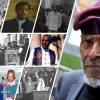Even though it no longer appears as a major item of interest on the nightly news, the issue and pursuit of reparations remains a critical and urgent concern for African peoples throughout the world African community. For reparations is an ethical and social issue of justice for a people, accountability from the oppressor, and an essential part of our unfinished fight for freedom. Thus, we are compelled to re-think carefully and continuously how we conceive and approach this critical issue and struggle.
The reparations struggle and, thus our people, are at a critical juncture of decision-making and moving forward. It is always at such critical junctures in a people’s history, especially at the unfolding moment of expanding victory, that a people and its liberation movement must make a decisive choice. They must decide to firmly and fearlessly forge ahead with their original goals or seek instead lesser and more attainable goals within the established order of things.
And it is at this time of both impending victory and heightened vulnerability, that the established order comes bearing strategically offered gifts of monies, artificial honor, symbolic inclusion and place and well-worded confessions of wrong done and guilt felt. But these confessions are crafted to benefit those in power, to frame and define the issues and discourse, to divert attention away from the major crimes and the more demanding requirements of reparations and to foment fracture and fragmentation and encourage separate settlements. Thus, we have almost everyone but the federal government offering monies and means, not only to repair the still debated injury, but also to reconcile with white folks, an open-end process which throughout history asks more from us, the injured, than them the injurers.
In such a system salvaging arrangement, we lack a united front and unified approach and agenda, common demands, and we find ourselves making separate settlements with cities, states churches, synagogues, universities, corporations, foundations and goodwill liberal ambassadors who thrive on reconciliation and Black declarations of forgiveness and love. This separate settlement process and practice, on one hand, is understandable, given the economic urgencies, and the current absence of a structure for the united front approach advocated here. But with a more critical look, we can see that this piece-meal approach is inadequate, deceptive and more symbolic than substantive. For the monies are mere small millions, not the trillions estimated due, and they go to groups, not to the masses of our people who need it most. And also important, the masses of our people are not participating, as they should, in the critical decisions about definitions, what’s due and modes of delivery.
There is in this struggle for reparations a need, as Haji Malcolm taught us, to place this in historical context. For all real thinking requires remembering. It is here we see the larger picture, the larger struggle, the struggle not only for compensation for injuries done and continuing, but also for racial justice in a larger sense and to finish the unfinished fight for freedom. The struggle for reparations is raised and pursued soon after the Holocaust of enslavement by Nana Callie House and her co-worker and co-combatant, Nana Isaiah Dickerson, with the founding of the Ex-Slave Mutual Relief, Bounty & Pension Association (1898). For it was and remains a burning issue of needed justice and an unfinished freedom for our people.
Thus, from its inception, reparations has been an emancipatory, a liberational project, not only a compensatory one. In other words, it is a larger project than one of money and wealth, although money and wealth are indispensable elements of it. Again, it is about justice and finishing the liberation project of our people, achieving a freedom that is real in every realm , including economics. And this is why it must not be separated from our larger struggle to free ourselves and be ourselves without penalty, prohibitions, or any form of oppression.
Reparations re-emerged as a central focus for several reasons. First, it was because of the long term and consistent organizing work and political education of the community, organizations and persons committed to it, especially the Black nationalist organizations. Among these are: the Nation of Islam- Messenger Muhammad and Haji Min. Malcolm X; N’COBRA – Dr. Imari Obadele and Queen Mother Dorothy Lewis; and the Reparations Committee For United Slaves Descendants founded and led by the Venerable Queen Mother Audrey Moore.
Of course, in the 60s, reparations discourse and initiatives were widespread and our organization Us participated in these initiatives. At a symposium on “Black Studies in the University” at Yale University, 1967, I had put forth three things that White people who wanted to contribute to the struggle against systemic racism could do: non-intervention—ending interference and oppression in the Black community, considered an internal colony, and conceding its self-determination; foreign aid – financial and technical aid and a civilizing committee to deal with the racist savagery believed and practiced by their fellow community and family members.
Certainly, we cannot forget or underestimate the groundwork laid by the Hon. John Conyers whose reparations bill, HR 40, put reparations on the congressional agenda since 1987 and was finally moved out of committee by Sheila Jackson Lee in 2019. Also, Atty. Randall Robinson, longtime leader of TransAfrica, offered a groundbreaking conversation on reparations in his work The Debt: What America Owes To Blacks. It served as a key work by a professional introducing this topic on a wide scale to the middle class of which he is a member.
Also, building on work and discourse already in place and in motion, the reparations discussion and movement is further expanded by the entry of a larger number and key members of the middle class – academics, writers, lawyers, legislators and influencers. The signature conversation for the entry of a larger number of the middle class is an article on reparations by the writer, Ta-Nahesi Coates, in the Atlantic, titled “The Case for Reparations.” Also, important here are Atty. Charles Ogletree and economist, Dr. William Darity and others. But it is important to realize, that the rise in this reparations discourse is rooted in the development and sustaining work and struggle before it.
Finally, the discourse and activities are expanded, building on the original base, by the rising tide of anti-racist struggles, marked especially by the Ferguson Revolt and increased initiatives against police violence; the rise of Black Lives Matter during and after this; and the public murder of George Floyd and the combined and related murders of Breonna Taylor, Ahmad Arbery, Eric Garner, Amadou Diallo and numerous others and increased resistance.
As a new and expanded round of reparations discussions and discourse take place, it is vital for us to maintain control of how we define and pursue this world historical project. Indeed, it is important to look back, remember and reflect and continuously rethink our ideas and efforts and the manipulative and suppressive moves of the system which acts at all costs to salvage and save itself and to get us to join in saving the abstract “soul” of America at the expense of the people of America, especially the most vulnerable and oppressed.
Reparations, in its most essential meaning, is an ethical act, repairing an injury, making right a wrong and ultimately doing justice to the injured and the world. For in our world-encompassing concept of reparation, we are to practice in our lives, work and struggle serudj ta, the ancient African Maatian ethical imperative to heal, repair, renew and remake ourselves in the process and practice of repairing, renewing and remaking the world. This means maintaining the emancipatory and liberational foundation and focus of the reparations struggle, linking it to our overall struggle to free ourselves and be ourselves, and to ensure ongoing African and human good and the well-being of the world.















